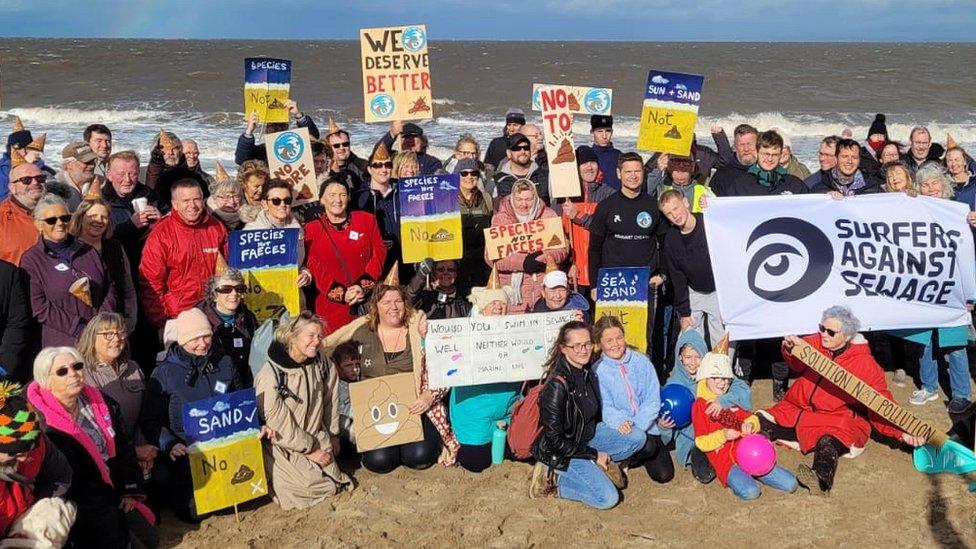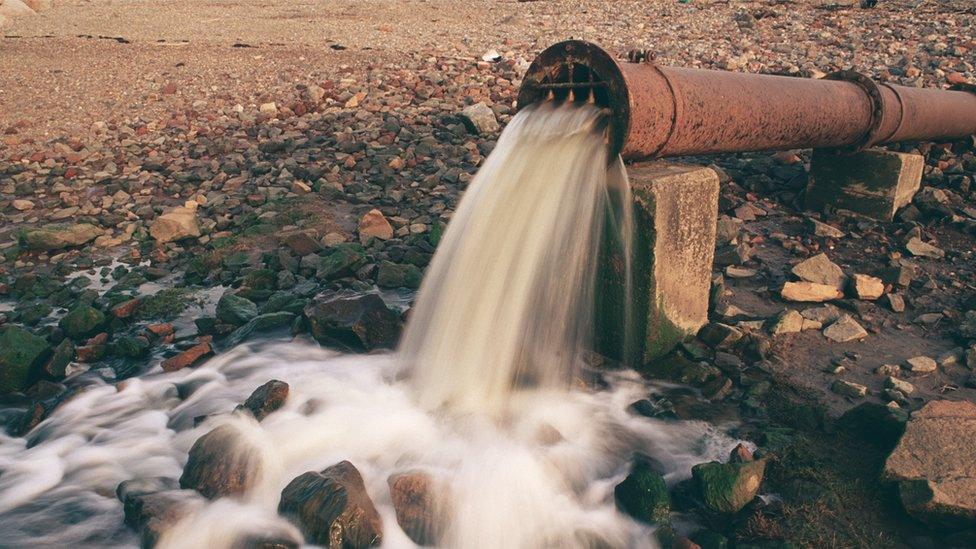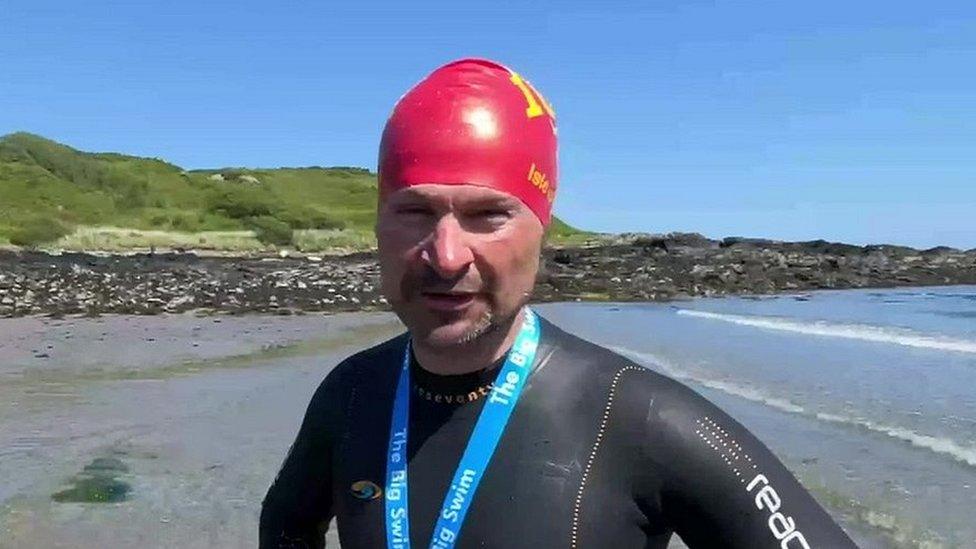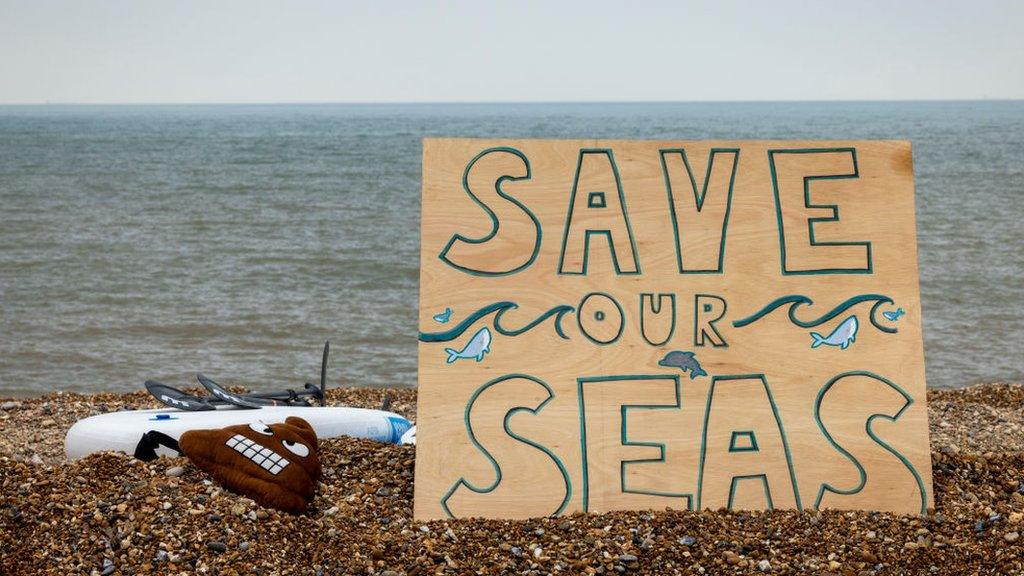Fleetwood: Record-breaking swimmer joins sewage protest
- Published

Demonstrators said they were "sick of pollution in our seas"
About 100 people have joined a record-breaking swimmer in a protest against sewage releases in water.
At the Lancashire rally, former soldier Adam Diver, believed to be the first person to swim the 32 miles between England and the Isle of Man, said they were "sick of pollution in our seas".
Water firms have been criticised about a high number of raw sewage discharges.
The government has announced a plan to improve water quality, including unlimited fines for polluters.
People have also been urged to avoid swimming when untreated sewage is discharged into the sea, as contaminated water could lead to serious illnesses.
Speaking on the Fleetwood coast, where a discharge closed beaches in June, Mr Diver said the release of sewage "destroys not only our livelihoods but our mental health".
"Water safety training courses have been cancelled because of the pollution and businesses have been affected, including the fishing industry," he added.

Why is sewage released into the sea and rivers?

Most of the UK has a combined sewerage system, meaning that both rainwater and wastewater - from toilets, bathrooms and kitchens - are carried in the same pipes.
Usually, all the waste is carried to a sewage treatment works.
But the Environment Agency (EA), which covers England, says capacity can sometimes be exceeded during heavy rainfall, especially when dry ground is unable to quickly absorb water.
This could lead to inundation of sewage works and potential flooding of homes, roads and open spaces.
For this reason, the system is designed to overflow occasionally and discharge excess wastewater into the sea and rivers.
This practice is known as combined sewer overflows, external (CSOs) and is permitted.
However, there is also evidence that some water companies are spilling sewage on days when it is not raining.
Without rainwater to dilute the sewage this can lead to higher concentrations of sewage entering our waterways - and therefore is illegal.

The Environment Agency said in England 16% of surface waters achieved "good" ecological status, compared to 63% in Scotland, 40% in Wales and 31% in Northern Ireland.
Industry body, Water UK, plans to nearly double spending for upgrades and cutdowns in sewage discharges, but said customer bills would have to rise by £156 a year to help pay for the change.

Why not follow BBC North West on Facebook, external, X, external and Instagram, external? You can also send story ideas to northwest.newsonline@bbc.co.uk, external
Related topics
- Published13 July 2023

- Published31 May 2023

